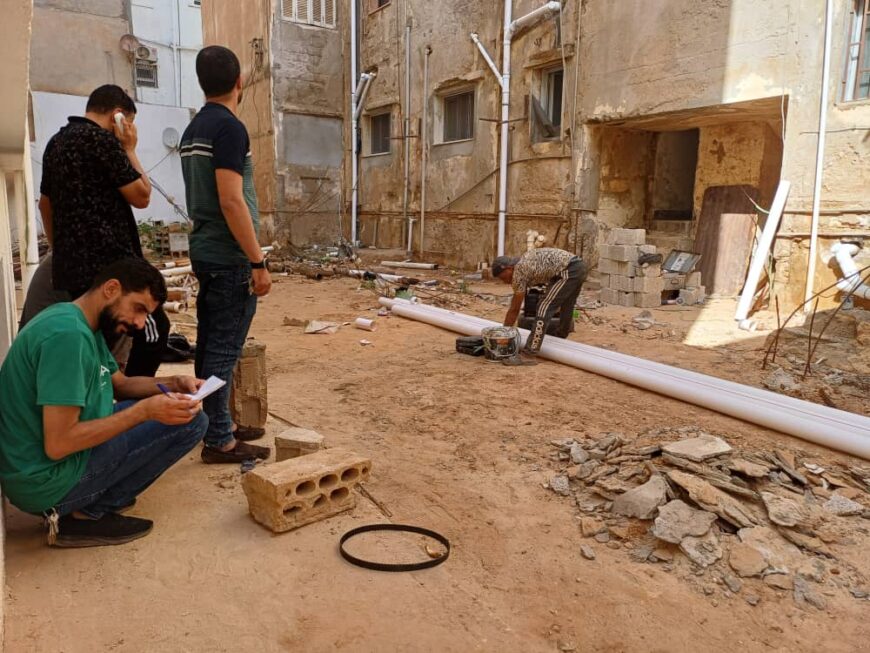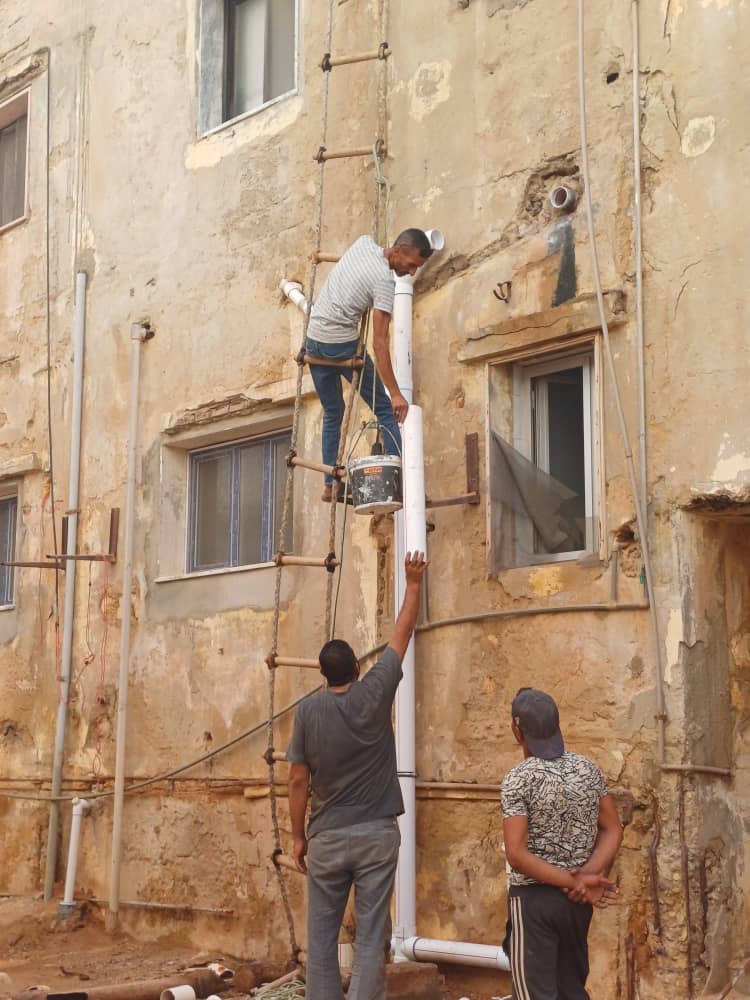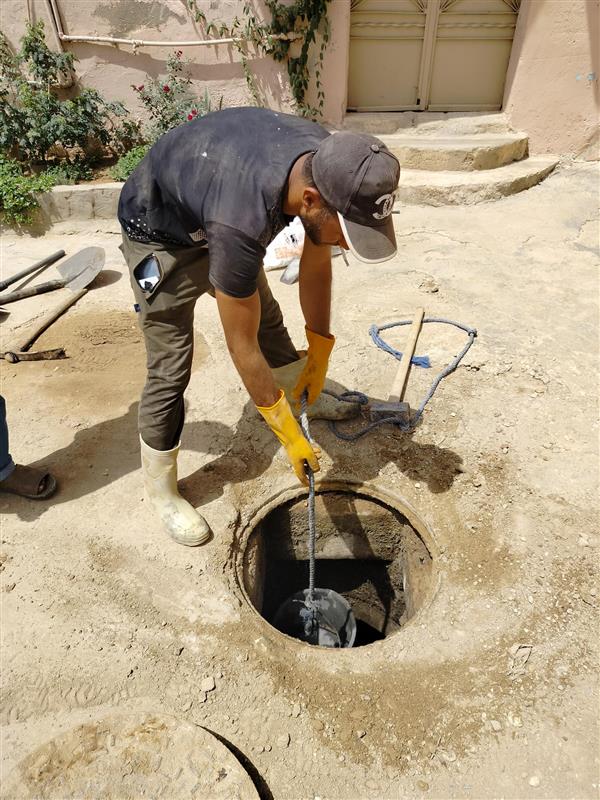From 9 to 11 September 2023, Northeastern Libya suffered from devastating human and material damage after being hit by Storm Daniel. The natural disaster unleashed an extreme flood affecting 250,000 individuals and causing almost 6,000 deaths, 44,800 internally displaced people and thousands of people still missing. The events affected not only the already present migrants, refugees, and Internally Displaced People (IDPs), present in the area before Storm Daniel, but also created a new wave of displacement and additional needs among households hosting IDPs.
Recognizing the urgent need for real-time information and coordination among stakeholders operating in and around displacement sites, Acted focuses on strengthening neighbourhood capacities, increasing community awareness, improving access to essential services, and enhancing the efficiency of referral systems.

In response, Acted launched an area-based approach to support the humanitarian response in Derna. Through a 4-month project titled “Strengthened CCCM through enhanced collaboration and skills of stakeholders and empowered communities in Derna” funded by the International Organization of Migration (IOM), Acted sought to strengthen the Urban Displacement and Out of Camp (UDOC) approach in Derna by enhancing stakeholder collaboration and empowering communities. The project achieved this through the empowerment of 46 community champions, support for 5 community-led projects and initiatives, peer-to-peer mentoring, workshops, focus group discussions, awareness sessions, and a social media campaign. It directly benefited 830 people, including community members and key stakeholders across five targeted neighborhoods, and indirectly benefited around 2,500 people.
Community Resilience Through Training
As part of the project, a three-days Disaster Preparedness training program was conducted in June 2024 with 35 participants, involving key stakeholders such as Civil Society Organizations (CSOs), the Libyan Red Crescent (LRC) as well as emergency response organizations. The training program sought not only to enhance the knowledge and skills of flood-affected working entities in emergency preparedness but also to build the capacity of beneficiaries in effectively managing emergencies. The objective was for participants to understand that beyond advocacy and activeness, patience and knowledge were also key in disaster management and recovery efforts.
Enhancing Local Volunteerism and Emergency Preparedness

The training program was met with great enthusiasm, as participants not only strengthened their commitment to local volunteerism but also gained valuable knowledge in camp management principles and community networking. Aisha*, a pharmacist and an active community member, along with Jamila*, a college employee and a member of the Scouts, highlighted how the program clarified essential emergency terminology. In a region like Derna, where migrants, refugees, and internally displaced persons (IDPs) coexist, understanding the distinctions between these groups is crucial for taking appropriate actions. By equipping flood-affected participants with enhanced knowledge and skills in emergency preparedness, Acted ensured the sustainability of humanitarian efforts.
I have tried to implement the basic things I learned [at the training] in my life and work. This has helped me manage people who have been affected by crises more easily and effectively.
Fostering Community Participation and Disaster Management
At the heart of the training program was the promotion of active community participation and engagement in disaster management and recovery efforts. By bringing together individuals from various organizations and introducing them to key civil society concepts, participants learned practical steps for crisis situations. As Amir*, a college employee, shared, they “[learned] practical steps, such as where to go and what to do in a crisis.”
The program covered vital lessons on managing displacement and humanitarian sites, including camp management and the strengths and weaknesses of IDPs. The three-day training on emergency preparedness, response, and community participation provided them with a better approach to supporting affected individuals more effectively. By fostering knowledge exchange and hands-on learning, the training successfully demonstrated the significance of disaster preparedness and its potential impact on community resilience.
When the floods occurred, we found it challenging to help the affected people, especially the children. (…) We wanted to gain more information through this training to help people better.

Community-Led Projects and Long-Term Impact
Following the emergency preparedness training sessions, 5 community-led projects were launched in Derna, translating the knowledge gained into tangible actions. These initiatives included sewage maintenance, water filtration system installations, and street cleaning efforts. The response from participants and community leaders was overwhelmingly positive, with many showing a strong commitment to participate and collaborate.
Acted’s Deputy Project Manager highlighted the significance of these projects: “While this initiative may represent only a small portion of Acted’s work in Libya, it has had a profound impact on the communities we serve. The enthusiasm and willingness of the participants to engage and support each other was truly eye-opening.”
As neighbourhood capacities were reinforced through risen community awareness, so was the accessibility to vital services and referral system. One of the significant successes was the maintenance of a major sewage system in a building housing multiple families, which had caused health issues and discomfort for residents. In addition to these efforts, a water filtration system was installed at a local school, providing clean water not only to the students but also to the surrounding neighbourhood.
The actions taken by Acted in Derna are in line with its global mission for sustainable and durable solutions for populations in need. The training program, part of a larger effort to build capacity and engage community participation, created a safe physical environment that enhanced the knowledge and skills of beneficiaries, thereby creating a sustainable virtuous cycle in efficient emergency response.
Overall, this 4-months project underscored the importance of crisis management skills and the value of networking among civil society partners. As the Deputy Project Manager noted, “It’s not just about advocating for change but understanding how to implement it effectively.” Through these efforts, Acted, supported by IOM, strengthened neighbourhood capacities, increase community awareness, improve access to vital services, and enhance the efficiency of referral systems. The positive outcomes and feedback from the project highlight its significant impact and the potential for continued community-led initiatives, paving the way for long-term resilience and development in the region.
*The names of the beneficiaries have been changed.